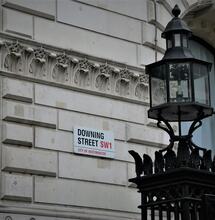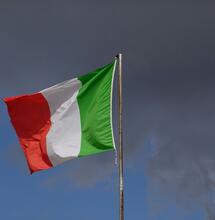Revealed: types and quantities of drugs seized by police at UK music festivals

Figures obtained under the Freedom of Information Act provide a unique insight into changing patterns of drug use at British music festivals
Figures obtained under the Freedom of Information Act provide a unique insight into changing patterns of drug use at British music festivals
On the Isle of Wight it's been largely about cocaine and ecstasy, at Glastonbury the hauls of ketamine have been creeping up, while the drug of choice for heavy metal fans would seem to be Jack Daniels and other booze.
As a tens of thousands of young (and not so young) music fans await another festival season, new figures based on police activities at 10 major festivals over the past four years provide an insight into the range and scale of drugs seized.
They show that seizures of popular drugs such as cannabis and ecastasy have been in decline, possibly due factors such as changing behaviour, demographics and policing priorities.
Cocaine seizures have been in sharp decline since the onset of the economic hard times, and there is some evidence to back up suggestions that recreational drug users have been turning to relatively cheaper drugs like ketamine, the horse tranquilliser dubbed the 'new ecstasy'.
Individual events also meanwhile display particular characteristics when it comes to the type of drugs seized.
The lion's share of cocaine seizures last year took place at the Isle of Wight festival and the island's other big musical event, Bestival, where 50,000 people enjoyed an eclectic mix of rock, folk and dance.
The two festivals also stood out from the others in terms of ecstasy seizures, accounting for nearly half of the value of all drugs seized at Bestival last year.
By contrast, drug seizures were almost non-existant at the Womad (World of Music, Arts and Dance), often regarded as the festival of choice for a stereotypically Guardian-reading, older music fan. Last year, the only drugs confiscated in swoops by Wiltshire Police was cannabis with a street value of £151.
Expectations that rock fans meanwhile might be prone to emulating some of their harder living idols are also somewhat confounded. Seizures were comparatively low at the two festivals catering for them - the Download festival in Leicestershire and Sonisphere at Knebworth House, Hertfordshire.
At Sonisphere, where 190,000 fans last year moshed along to bands including Motorhead and Slipknot, just over £400 of drugs was seized across the weekend. It was mostly cannabis, with cocaine making up the balance. Ecstasy and amphetamines were absent.
At the country's best known gathering of music lovers, where Glastonbury organisor Michael Eavis last year said that the drug culture "had changed beyond belief" and that it was "a cheek to even suggest there's a problem", more than £200,000 worth of drugs has been seized by police over the past four years.
Last year's haul of more than £44,000 was a rise of 12% on the previous year although, like other festivals where larger quanties of drugs have been confiscated, seizures are considerably down on 2009's relative high.
Across all 10 festivals - Glastonbury, V, the Isle of Wight, Bestival, Download, Sonisphere, Leeds, Reading, Womad and Wireless- there has been a sharp decline since that year in the value both of cocaine and cannabis seized, according to the figures obtained through a series of Freedom of Information requests by Request Initiative, a nonprofit that makes requests for charities and NGOs.ust over £21,000 worth of cocaine was seized last year, compared to £88,000 in 2009, while the street value of confiscated cannabis last year was also down more than 75%.
The biggest proportional increase saw confiscations of piperazine, or BZP, increase in value tenfold over the same period, though last year's total still amounted to less than half of those for each of cannabis, cocaine and ecstasy.
Other potential trends include the emergence of ketamine, identified in the past as the fastest growing "party drug" among 16-24 year olds. The festival where the largest amount's worth of the drug (£8,277) was confiscated last year was Glastonbury, where the amounts have been creeping up.
The figures are low for the Wireless festival, where drug confiscations were conducted by private security and police present did not collect data relating to confiscations.
Drug charities cautioned against using the figures as an indicator about general drug use, suggesting that seizures depend on many other variables, ranging from police priorities to the weather.
However, Rupert George of the drugs charity Release, said the figures seemed to reflect the changing demographics of festival goers and the shift to an older crowd less likely to be taking drugs.
"Festivals have tended to become more expensive, corporate and mainstream with older more middle class crowds that probably attract far less intensive policing. The policing of drug possession tends to be disproportionately targeted at the young, the poor and people from ethnic minorities. Festival crowds probably no longer fit this profile."
David Raynes of National Drug Prevention Alliance said cultural changes had brought about a situation where people are prepared to put almost anything into their bodies.
Adding that the drugs supply at festivals was not predictable, he said: "I am not sure that Policing generally makes the effort it once did, say 40 years ago, to detect drug dealers at festivals. I have never heard it spoken of as a priority. They will of course expect to come across drugs and as I recall there have been some high profile deaths."
Raynes also referred to the ageing profile of festival goers, adding that may not have entirely given up on past habits and may well be much more more likely to use drugs than the wider population.
Brendan Montague, executive director of Request Initiative said: "This is the first major research project providing empirical evidence showing the extent and nature of drug taking at national music festivals in the UK and shows that Class A drugs including cocaine and MDMA are still very popular among music fans."
"There has also been a significant shift from cocaine which is expensive to the cheaper drug ketamine as the country has been in and out of recession."
http://www.guardian.co.uk 21/05/2012



